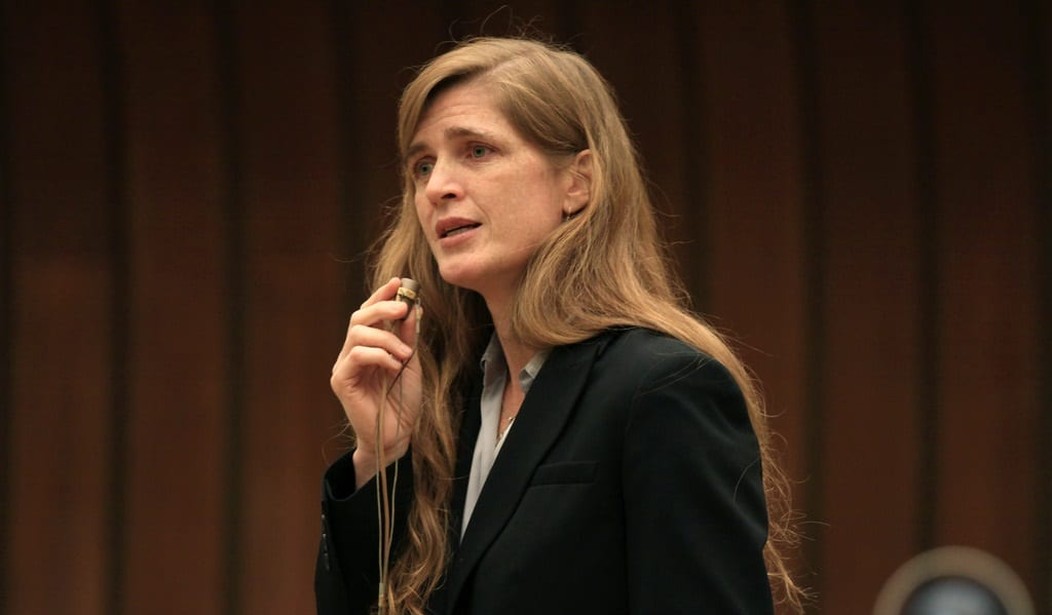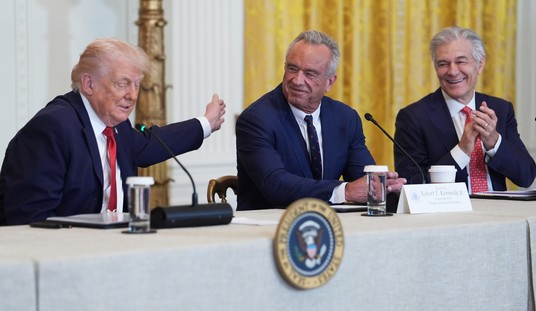
Public Domain photo via US Mission Geneva https://www.flickr.com/photos/us-mission/
One of the most amazing factoids to arise from the whole FISA unmasking scandal involved, of all people, former UN Ambassador Samantha Power.
On its face, Section 702 of the Foreign Intelligence Surveillance Act, looks reasonable and benign–much like those good intentions that pave the road to Hell.
Section 702 authorizes the government to acquire foreign intelligence by targeting non-U.S. persons “reasonably believed” to be outside U.S. borders. Taken together, these two requirements identify the fundamental domain of Section 702 surveillance: it applies to foreigners on foreign soil. It is expressly against the law to attempt collection of information from targets inside the U.S.—whether Americans or foreigners—or to deliberately target the collection of online communications of American citizens.
But, as is increasingly the case, laws are outrun by technology. It is probably safe to say that a minority of communications are via landlines and a cell phone number provides no information on the location of the phone or even who owns it.
If that were all that the 702 program involved, it would likely not be particularly controversial. Few Americans have expressed grave concerns about America’s overseas intelligence collection. Significantly, the 702 program cannot be used to target any U.S. person or any person located in the U.S., whether that person is an American or a foreigner. The government is also prohibited from “reverse targeting” under 702—that is, the government cannot target a non-U.S. person outside the U.S. when the real interest is to collect the communications of a person in the U.S. or of any U.S. person, regardless of location.
But a residual issue arises because of the inevitability of inadvertent collection—the incidental collection of information about Americans as part of the authorized collection of foreign intelligence.
Again, if this is where the law stopped, so, too, would the controversy. But that really isn’t what happens:
This prospect of collecting American data led Congress to include certain requirements that would reduce, though not entirely eliminate, the possibility that the data could be misused. Under the FAA, when information is collected about an American, whether incidentally as part of an authorized investigation, or inadvertently as the result of a mistake, the government is required to apply FISC-approved “minimization” procedures to determine whether such information may be retained or disseminated.
When lawyers and intelligence professionals use the word “minimization” in the context of intelligence collection, it means that any information inadvertently collected on a U.S. person is retained (if at all) only for a limited time, and that information about Americans is used and revealed and further disseminated only under narrowly defined circumstances. Minimization requirements may also mean deleting the information entirely. As with the targeting procedures, these minimization procedures are approved by the FISC—but again, the approval is for the entire system of minimization, not for each individual case.
So, for example, under these minimization rules, the NSA, CIA, and FBI are subject to certain limitations in how they are permitted to query and analyze the data they have lawfully collected. For example, they must demonstrate a reasonable likelihood that targeting a particular item in the information collected will result in the development of foreign intelligence. In other words, the rules limit when a U.S. person can be targeted for examination, and how long data about an American can be retained before it is deleted.
Looks good on paper, right? But what happens when a legitimate foreign target (and, arguendo, we’ll take at face value that Section 702 is not used for warrantless surveillance of US citizens in the United States — I don’t hold that belief but its truth or falsity is irrelevant to the story) says something interesting to a US citizen. Then we are in the realm of “unmasking” the identity of the US citizen and literally everything that has been said about Section 702 earlier is not really true anymore. A US citizen can have their name attached to a particular conversation in one of three circumstances, a) when the person has affirmatively consented, b) when the information is public anyway and c) when the U.S. person’s identity “is necessary to understand the foreign intelligence information or assess its importance.”
What is the threshold for being able to satisfy your curiosity? And to be clear, here we are talking about curiosity as high political figures would not be involved in directing the unmasking of people suspected of criminality. The answer to that question probably depends on your rank in the administration.
Early in the administration, it was revealed that officials in the Trump campaign and transition team had been targeted for extensive unmasking by the Obama administration. Arguably, there is some reason the Obama administration had for being curious about the activities of the Trump campaign. In fact, given what was revealed yesterday about the way in which the Obama administration actively protected Hillary Clinton, political espionage was probably high on the list. Be that as it may, there are exactly zero reasons why the outgoing administration needs to know what the transition team of the incoming administration is doing. None.
While Susan Rice, who was taking a break from lying to the American people to run Obama’s National Security Council, arguably had a valid need, the most curious addition was that of former UN Ambassador Samantha Power.
Samantha Power, the former U.S. ambassador to the United Nations, was ‘unmasking’ at such a rapid pace in the final months of the Obama administration that she averaged more than one request for every working day in 2016 – and even sought information in the days leading up to President Trump’s inauguration, multiple sources close to the matter told Fox News.
Two sources, who were not authorized to speak on the record, said the requests to identify Americans whose names surfaced in foreign intelligence reporting, known as unmasking, exceeded 260 last year. One source indicated this occurred in the final days of the Obama White House.
But last night Trey Gowdy was on FoxNews and had this to say:
Former President Barack Obama’s ambassador to the United Nations has testified that others made so-called unmasking requests in her name, House Oversight Committee Chairman Trey Gowdy said Tuesday.
“Her testimony is they may be under my name, but I did not make those requests,” Gowdy said of former Ambassador Samantha Power during an interview with Fox News’ Bret Baier on “Special Report with Bret Baier.”
Power is among the Obama administration figures who made requests to identify Americans whose names surfaced in foreign intelligence reporting, known as unmasking.
Last month, Fox News reported that Power was unmasking at such a rapid pace in the final months of the Obama administration that she averaged more than one request for every working day in 2016 – and even sought information in the days leading up to President Trump’s inauguration.
“I think if she were on your show, she would say those requests to unmask may have been attributed to her, but they greatly exceed by an exponential factor the requests she actually made,” Gowdy said. “So, that’s her testimony, and she was pretty emphatic in it.”
The South Carolina Republican added, “So, we’ve got to get to the bottom of that. If there is someone else making requests on behalf of a principal in the intelligence community, we need to know that because we’re getting ready to reauthorize a program that’s really important to the country, but also has a masking component to it.”
Either Power is blatantly lying to Congress — and she would not be the first or only Obama cabinet official to do that — or staffers at the UN mission were unmasking Americans using her authority. The question then becomes who? And to what end? Nothing in the potential universe of answers to those questions is likely to make you feel warm and fuzzy.
Like FOIA and the Privacy Act, Section 702 looks great on paper. In reality, the paper is a sham and only observed because it is in the transient advantage of the government to do so. By and large, giving the federal government the authority to read or listen in on your electronic communications with the expectation that that ability will not be abused makes about as much sense as giving a three-year-old a Zippo and a full five-gallon can of gas. Nothing might happen but you have no reason to be shocked when something does.












Join the conversation as a VIP Member